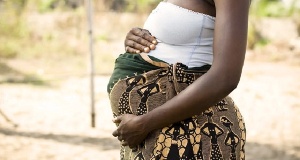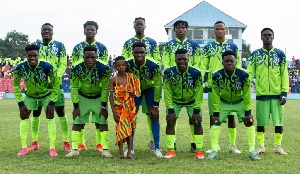- Home - News
- Elections 2024
- News Archive
- Crime & Punishment
- Politics
- Regional
- Editorial
- Health
- Ghanaians Abroad
- Tabloid
- Africa
- Religion
- Photo Archives
- Press Release
General News of Wednesday, 14 May 2025
Source: www.ghanawebbers.com
Over 14,000 teenage girls impregnated in Bono Region within 4 years – Health Directorate
The Bono Region reported 14,877 teenage pregnancies from 2021 to 2024. This information comes from Rita Adjoa Ansong, Deputy Director of Nursing Services at the Bono Regional Directorate of Health.
During this period, there were also 1,188 abortion cases among girls aged 15 to 19. Miss Ansong shared these statistics at a stakeholders’ meeting in Sunyani. The meeting was part of the African Vaccination Week and Child Health Promotion Week activities.
In detail, she provided yearly figures:
- In 2021: 3,999 pregnancies and 388 abortions.
- In 2022: 4,058 pregnancies and 351 abortions.
- In 2023: 3,492 pregnancies and 217 abortions.
- In 2024: 3,328 pregnancies and 282 abortions.
Miss Ansong described the situation as worrying. She urged stakeholders to support Family Planning (FP) efforts for sexually active teenage girls. Improving FP coverage can help reduce teenage pregnancies.
She emphasized that FP allows girls to make informed choices about their health. This enables them to continue their education. Miss Ansong identified barriers such as myths, lack of community support, and outdated beliefs that hinder access to FP methods.
In terms of service coverage in the region for women and girls of reproductive age, it reached 39.58% in 2024. This is an increase from 36.45% in the previous year. The acceptor rate also rose by 0.08%. She credited this improvement to partner collaboration and consistent supply of FP commodities.
Organizations like Marie Stopes and DKT provide free commodities that significantly boost acceptor rates. Miss Ansong highlighted that FP empowers women and girls for healthier futures.
She called on stakeholders and media to raise awareness about existing barriers to FP access.
Earlier in the meeting, Dr. Prince Quarshie explained its purpose was to raise awareness about immunization importance. He noted it aimed to strengthen collaboration among government agencies, partners, community leaders, health professionals, and media.
African Vaccination Week (AVW) has been celebrated annually since its establishment by WHO in 2010 during the last week of April (24th-30th). It promotes immunization as a lifesaving intervention.
Dr Quarshie also mentioned Child Health Promotion Week (CHPW), introduced by the Ministry of Health in 2004. CHPW occurs from May 5 to May 9 each year focusing on nutrition, immunization, and preventive care for children under five years old.











